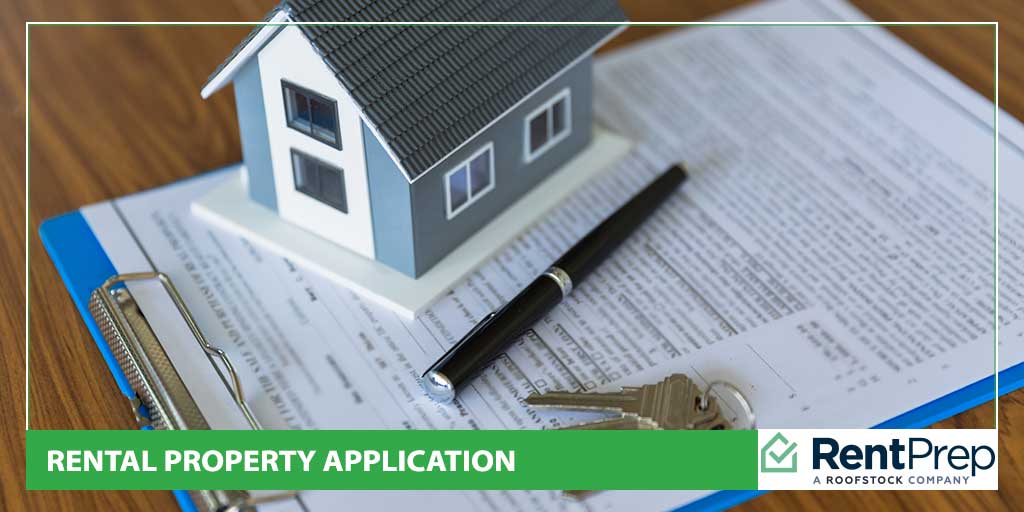
Rental property application are a standard part of the rental process, but some landlords use them more for show than anything else.
Did you know that using the right rental property application in the right way can actually help reduce the number of problem tenants that you have to deal with? Did you know that sorting your lease application form in one specific way can help you fill vacancies with great tenants faster than ever?
While you can use any printable rental application for your properties, you can get more from these applications if you put a bit more thought into what goes on the application before you even send it out.
Let’s get into the details of rental property applications.
A Table of Contents For Residential Rental Applications
- Rental Application Basics & Why You Need One
- What To Include In Your Rental Application
- No Blanks
- To Fee or Not To Fee
Rental Application Basics & Why You Need One

Before we get too deep into what goes into the rental application, let’s back up and talk about what this application is and why you absolutely need to have one.
A rental application is an application through which a potential tenant gives a future landlord information about themselves so that the landlord can decide whether or not they want to rent a property to this tenant.
These documents may include different information from landlord to landlord, but there are some common factors which should be on every single application. We’ll talk more about these below.
Why do you need one?
Put simply, having a stack of completed rental applications to look through when choosing a renter for your property helps you to make a more informed and less risky decision about your future tenant. While it would be nice to choose tenants based on how you feel about them, the simple truth is that you need to know more than that.
When you’re entrusting your property to a tenant, you’re making a financial investment that isn’t guaranteed to pay off. By using thorough rental applications, you are raising the odds of you coming out in the green!
If you haven’t had time to put together your own rental application yet, get started right now with a simple rental application.
What To Include In Your Rental Application
There’s a lot of information that you could ask for on your application, but you should think about what exactly you need to know and why you need to know it.
Not only will understanding why you are including specific things on a document help you explain the application to potential tenants that have questions, but it will also help you to think through your rental criteria and what you expect out of a great tenant.
Generally speaking, you can usually find the following items in a rental application:
- Name
- Current address & phone number
- Email address
- Previous addresses (including previous landlord references, if applicable)
- Emergency contact
- Employment & income information
- Background information (including but not limited to criminal charges)
- Driver’s license number
- Social security number (if you will be running the credit & background check)
- Personal references
This information should help you to make a decision about what tenant you would like to invite to stay on your property. But how can you use this information to make that decision?
Employment
One of the main things you will want to ask about is employment. You need to verify that the potential tenant has the cash flow to pay the going rental rate, and the only way to do that with outside confirmation is to ask for employment information and references. With this information, you can verify a few things.
First, you can ensure that the tenant is being truthful by making a quick call to the reference in question. Second, you can find out if they will be able to afford to live on your property.
While some tenants might not believe this, you as a landlord should never be looking critically at their wages and employment information beyond figuring out whether or not the tenant would be able to pay rent reliably.
By calling their work and checking out pay stubs, you can predict whether or not it seems like the tenant will be able to pay their rent on time and regularly.
Background Check

Background checks are an important part of the rental application. A background check will let you know about any charges, criminal or otherwise, that are in the tenant’s history. Additionally, bankruptcy and eviction records can show up in a background check.
While charges may or may not be indicative of the tenant’s level of responsibility, it’s important that you have a chance to learn about this type of history so that you can make an informed decision about whether or not it concerns you or your property’s well-being.
To run a background or credit check, you must have the proper permission from the potential tenant. Written permission should be given when they fill out the rental application, and you can find this type of consent section on page two of this rental form.
Credit Check
Credit can tell you many things about a tenant. As you might already know, credit is a relatively good indicator of how fiscally responsible someone has been and can be expected to be.
As with anything, credit is not a failsafe way of choosing a tenant, but it is important. If a tenant applies with a bad credit score, you should expect some sort of explanation of this to help you feel more comfortable about committing to a lease with them.
As mentioned above, please be sure to follow all the rules of the Fair Credit Reporting Act.
Prior Leasing History
While this isn’t included on every rental application, it can be beneficial to know a bit of whether the tenant has rented before and what that situation was like.
If you collect prior leasing history information from a potential tenant, you can and should call prior landlords to ask basic information about how responsible and timely the tenants were. This information can save you from tenants who are repeatedly difficult.
WARNING: Do Not Ask Topics
As a landlord, there are certain things that you cannot ask about. Specific categories cannot be used to make the decision about whether or not you will rent a property to a specific person, so you cannot ask about them.
Never ask about the following in a rental application:
- Race
- Religion
- Gender
- Age
- Disabilities
- Family status
- Nationality
- Ethnic background
It is against the law to ask about any of these things or to use anything on the list above to make your decision about a property, so do not include them in your application.
“No Blanks”
A rental application is meant to help make choosing a tenant for your property easier, not harder. That being said, many landlords still find it hard to make a decision, especially when tenants do not fill out all of the requested information.
To make your job of picking a great tenant even easier, you may want to consider implementing a “no blank spaces” policy. It’s been shown that requiring tenants to fill out every space on the application before you will even process their application improves your chances of finding a great tenant.
In most cases, a tenant will only leave spaces such as previous address or social security number blank if they have something that they want to hide from you. You are saving yourself time and money by refusing to accept applications with blanks as it will typically deter anyone who is trying to hide the truth about their social or financial situation.
To Fee or Not To Fee
There are some landlords who think that charging a fee with a rental application is unfair. Other landlords believe that a high fee is the way to keep only serious applicants from applying to rent your property.
Ultimately, that decision is up to you, but charging a fee for processing a rental application does have some benefits.
First, the fee should directly offset the cost of running a credit and background check. Since running this information is a great way to ensure that you find tenants with a reliable history, you want to be able to cost-effectively gather the information.
Second, you should never make a profit off of the rental application fee, but you can still consider it as a way of managing who will and who will not apply. Anyone who is serious about your property and fiscally responsible enough to rent it should be able to pay for a rental application fee. Of course, various situations may arise, but charging a fee generally works.
Conclusion
As you can see, there’s a lot to learn about residential rental applications. Even though you don’t gather that much information from potential tenants, the information you gain through the application holds the key to figuring out which tenant will be right for your property.
Remember the following as you work through this process:
- Every piece of information you gather has a purpose. Be sure to follow up on each lead and get reliable information.
- Do not ask about forbidden topics on your rental application.
- Do not accept rental applications with any blank spaces.
- Charging a fee to cover the cost of running the credit & background check is common.
You can find the perfect tenants by using the right rental application. Does your application fit the bill? If you don’t have a great rental application yet, you may want to consider this free rental application to get you started.

